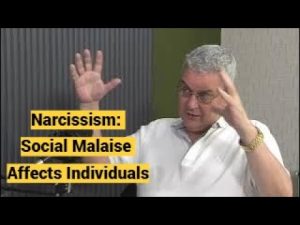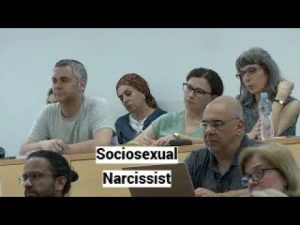
Narcissism: Social Malaise Affects Individuals (with Psychologist and Biologist Marcia Maia)
Healthy narcissism is a foundational element of mental health—regulating self-worth, identity, and functioning—while the speaker argued that reality testing should be added as a core criterion to distinguish health from shared or delusional fantasies. The discussion warned that political correctness, the glamorization/denial of mental illness, and social media’s business model encourage addictive shared fantasies and hive minds that amplify envy, anger, and exclusion, eroding institutions and interpersonal belonging. The guest argued we are amid a major narrative transition (from reality-based to fantasy-based social organization) that is fragmenting society, increasing atomization and risk, and may be effectively irreversible once fully entrenched. Narcissism: Social Malaise Affects Individuals (with Psychologist and Biologist Marcia Maia)









